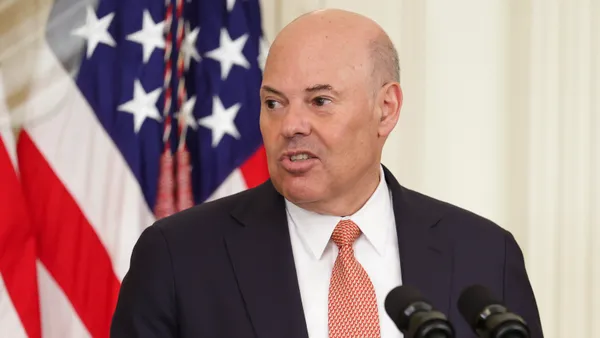Dive Brief:
- A federal district court has dismissed a U.S. Equal Employment Opportunity Commission (EEOC) lawsuit alleging that the ability to contract Ebola is a disability.
- EEOC sued a Massage Envy franchisee in April, alleging that it violated the Americans with Disabilities Act (ADA) when it fired a massage therapist shortly after she asked for time off to visit her sister in Ghana. The owner feared the worker would contract Ebola if she traveled to the West African country, according to court documents. The commission said the action violated the ADA’s “regarded as” prong of the definition of disability — a standard that is, by design, easy to meet. It requires only that an employee show that he or she was subjected to an adverse action because of an actual or perceived physical or mental impairment.
- Acknowledging that the company’s actions were “deplorable,” the court said the worker had no existing rights under the ADA at the time of her termination, including no right to an accommodation, because she did not have a disability, she did not have a record of a disability, she was not regarded as having a disability, nor had she associated with any individuals known to have a disability. As a result, the company’s behavior was not actionable under the statute.
Dive Insight:
The ruling is good news for employers, as the EEOC's assertion that the potential to contract a disease could be a disability was a new and expansive one. Some experts have noted that if the ability to contract a disease — or become injured at some point — were a disability, quite literally everyone could be disabled.
The commission had pointed to several other rulings in support of its arguments, but the court said that reliance on was misplaced, as all of the employers in the cases believed, albeit mistakenly, that their employees were presently impaired. In this case, the employer believed the worker to be presently healthy.
It's important to note, however, that if the employer knew that the employee had previously associated with an individual in Ghana with Ebola, she may have had success with an associational discrimination claim, writes Eric B. Meyer, a partner at Dilworth Paxson LLP and author of the The Employer Handbook.













